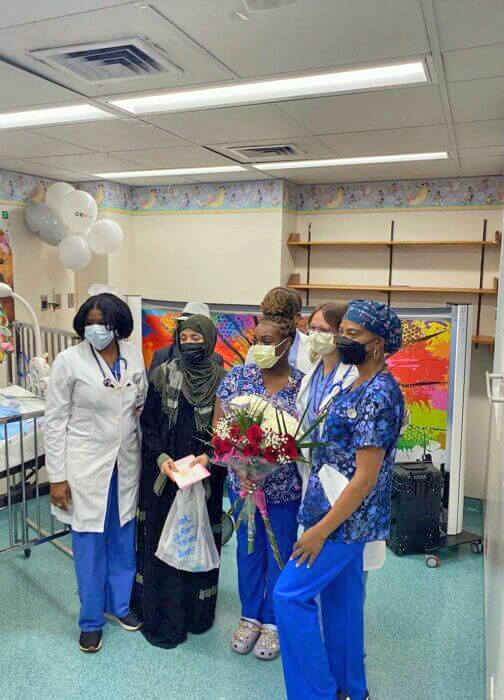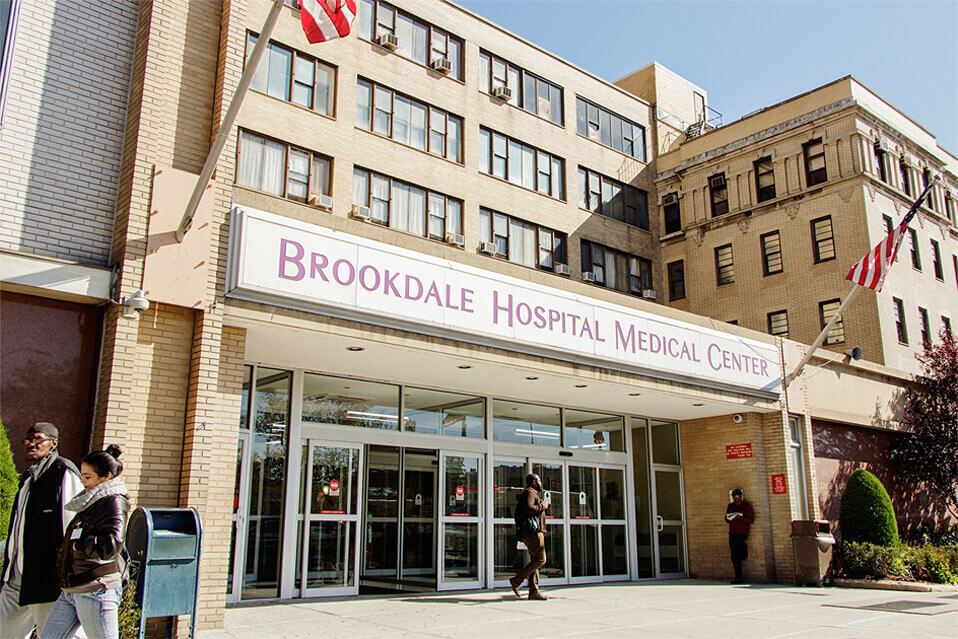One of the smallest babies ever to survive delivery in Brooklyn is finally going home, at a healthy weight, after six months of residency in the neonatal intensive care unit at Brookdale Hospital.
Baby Raneem Almohana, the daughter of Hager Musleh and Salah Almohana of East New York, was born on Jan. 29 weighing less than a pound, at just 13.2 ounces or 375 grams. Her remarkable survival puts her among the tiniest infants ever successfully delivered in the five boroughs.
Raneem was delivered three months premature, without having fully gestated in her mom’s womb. Since she was born so early, she had not fully developed by the time she came into the world via Caesarean section. Raneem was intubated on a breathing tube for three months in the NICU, but even after coming off the tube she would still have another three months to go in the unit, where staff worked around the clock to ensure her nutritional needs were met and that conditions were right to ensure her survival.

“From the delivery room, to the critical ICU period, to this day, Raneem continues to inspire and motivate the entire [One Brooklyn Health] Brookdale physician and nursing NICU team to work harder and harder, just knowing that we could provide world-class, excellent care to this miracle infant and to our community,” said Dr. Kemi Mascoll-Robertson, a neonatologist at Brookdale who has attended to Raneem’s medical needs.
NICU staff are now pleased to say that the day has finally come: Raneem was discharged from Brookdale this week and will finally be heading home after one last surgery.
Dr. Mascoll-Robertson said that while babies born at 28 weeks like Raneem are not uncommon, what made her so special was that she weighed about a third of what normal babies weigh at that time in a pregnancy — about 1,000 grams.
Babies weighing under 400 grams are so uncommon that since the 1980s, all of them have been recorded on the University of Iowa’s Tiniest Babies Registry. According to the registry, Raneem is, indeed, the lightest baby ever successfully delivered in the City of New York since the university starting tracking. She’s the third smallest in New York State history.
Also remarkable about Raneem is the fact that, with her residency at Brookdale over, she is largely as independent as a baby can be, without medical interventions. She is breathing regular air, and had no internal bleeding in the brain and eyes often seen in similarly premature babies, Dr. Mascoll-Robertson said.
Like other “preemies,” Brookdale automatically enrolled Raneem in early intervention programs to detect abnormalities that are sometimes associated with premature birth, like sensitivity to light and sound. But the staff that worked with her are confident that the “miracle baby” will succeed going forward.
“Part of it is what we do,” Dr. Mascoll-Robertson said. “But I think she was meant to be here, honestly.”



























